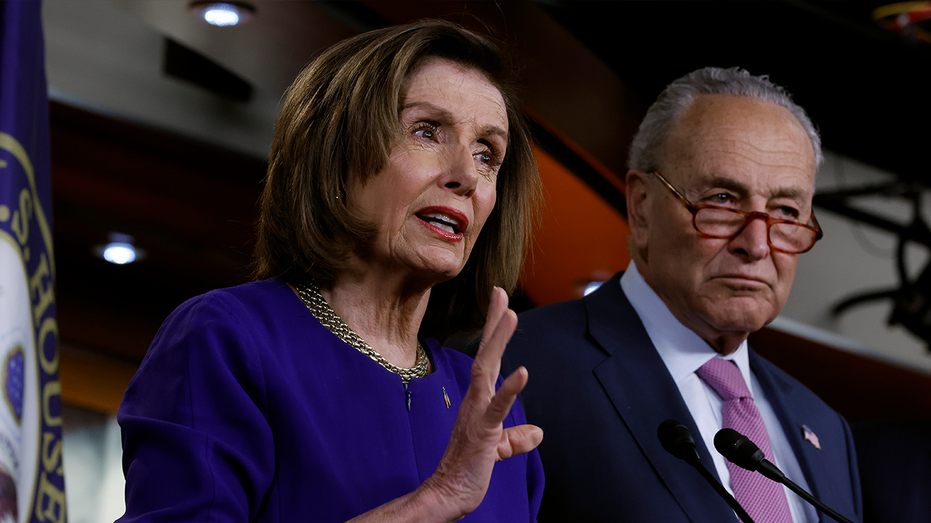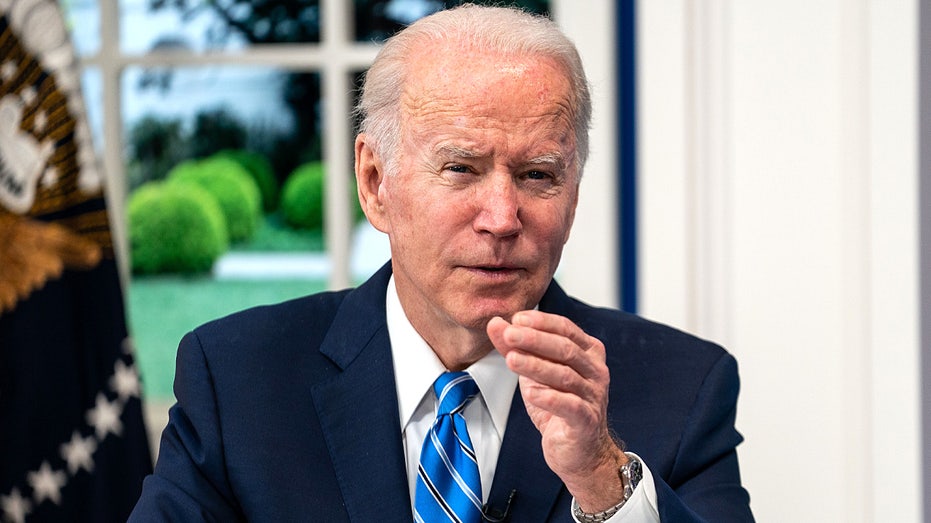More spending: Congress faces multibillion-dollar Medicare fix when it returns after midterms
A pending cut to Medicare funds could 'severely impede' patient access if not addressed
Biden speaks on Social Security, Medicare and prescription drug costs
Biden speaks on Social Security, Medicare and prescription drug costs.
The lame duck Congress will be under intense pressure when it returns from the midterm elections to approve billions of dollars in new funding to shore up Medicare, after a year in which rampant federal spending was blamed for inflation levels that haven’t been seen in 40 years.
A pricey Medicare patch is on the horizon to essentially reverse billions' worth of scheduled payment reductions to doctors which are statutorily required but unpopular in Congress. Lawmakers are not required to address this issue, but they have routinely done so and are widely expected to do so again before Jan. 1.
The Center for Medicare and Medicaid Services (CMS) announced this week that current federal law requires a 4.5% cut in the reimbursements doctors receive from the government for services provided under Medicare, the federal health insurance program for people over 65. That cut would take effect at the start of 2023, less than two months away.
Part of that cut is required because a supplemental boost for physician payments is expiring at the end of this year, and reimbursements must therefore be lowered to meet the fee schedule set under current Medicare law. CMS predicted that cut over the summer and finalized it in a Nov. 1 regulation that spanned nearly 3,000 pages.
BILL CLINTON SPREADS DISPUTED DEM CLAIM THAT GOP WANTS TO CUT SOCIAL SECURITY, MEDICARE

Nancy Pelosi and Chuck Schumer will likely scramble to avoid a Medicare mess when they return to lead the lame duck Congress. (Chip Somodevilla/Getty Images / Getty Images)
In addition to that problem, automatic spending cuts required in 2023 — known broadly as the PAYGO sequester — will force another 4% cut to Medicare reimbursements. Medical groups said the combined 8.5% cut to reimbursements received by doctors would make it impossible for some facilities to keep operating in the face of record-high inflation, which would reduce seniors’ access to Medicare.
"Unless Congress acts by the end of the year, physician Medicare payments are planned to be cut by nearly 8.5 percent in 2023 — partly from the 4 percent PAYGO sequester — which would severely impede patient access to care due to the forced closure of physician practices and put further strain on those that remained open during the pandemic," said Jack Resneck Jr., MD, president of the American Medical Association.
"Without congressional action, vulnerable seniors' nationwide access to timely, high quality and essential surgical care will be negatively impacted," added Dr. Patricia Turner, CEO and executive director of the American College of Surgeons.
HAWLEY SHOOTS DOWN GOP TALK OF USING DEBT LIMIT AS LEVERAGE ON SOCIAL SECURITY, MEDICARE

Medicare is the nation's federal health insurance program for people over 65. (Associated Press / Associated Press)
Bipartisan legislation has already been introduced this year to address the problem, and last year, Congress approved similar legislation in December to avoid Medicare PAYGO cuts for three months, just before the Jan. 1 deadline.
Robert Moffit, Ph.D., a senior fellow in domestic policy at the Heritage Foundation and former Health and Human Services official in the Reagan administration, said he agrees the pressure is on to do something to avoid a bad result for seniors, and that the votes will likely be there.
"Who’s going to vote against Medicare?" he told FOX Business.
While there is no formal cost estimate, the Center for a Responsible Federal Budget estimated in September that it would cost $15 billion to stop the Medicare PAYGO cut for one year, and at least another $2 billion to restore supplemental funding for physician payments.
In 2021, the Congressional Budget Office estimated that the cost of stopping the 4% PAYGO cut to Medicare is about $36 billion.
GO-BROKE DATES PUSHED BACK FOR SOCIAL SECURITY, MEDICARE

President Biden has said Republicans want to gut Medicare, but many will likely vote for a Medicare patch in November or December. (Kent Nishimura / Los Angeles Times via Getty Images / Getty Images)
Moffit criticized the overall Medicare system for relying on government-planned cost estimates that routinely fall short of reality, which forces Congress to pony up billions more in funding at the end of the year to keep the flawed system operating.
"Congress has continually failed to reform Medicare physician payments in such a way that it guarantees stability in physician revenues and continued patient access to high-quality care," he said. "Budgetary fixes do not compensate for policy failure."
Moffit said a better answer is to move Medicare into a defined contribution system instead of a defined benefit system, one that gives patients more of a stake in the cost of service and benefits from more competition in how that service is provided.
CLICK HERE TO GET THE FOX BUSINESS APP
"The current system relies on centralized planning, a massive system of bureaucratic central planning where the Medicare bureaucracy attempts to fix the price of over 8,000 medical services in 3,000 counties across the United States on the basis of a complex and outdated formula," Moffit said.




















